The seaside sanctuary for injured WWI Indian soldiers
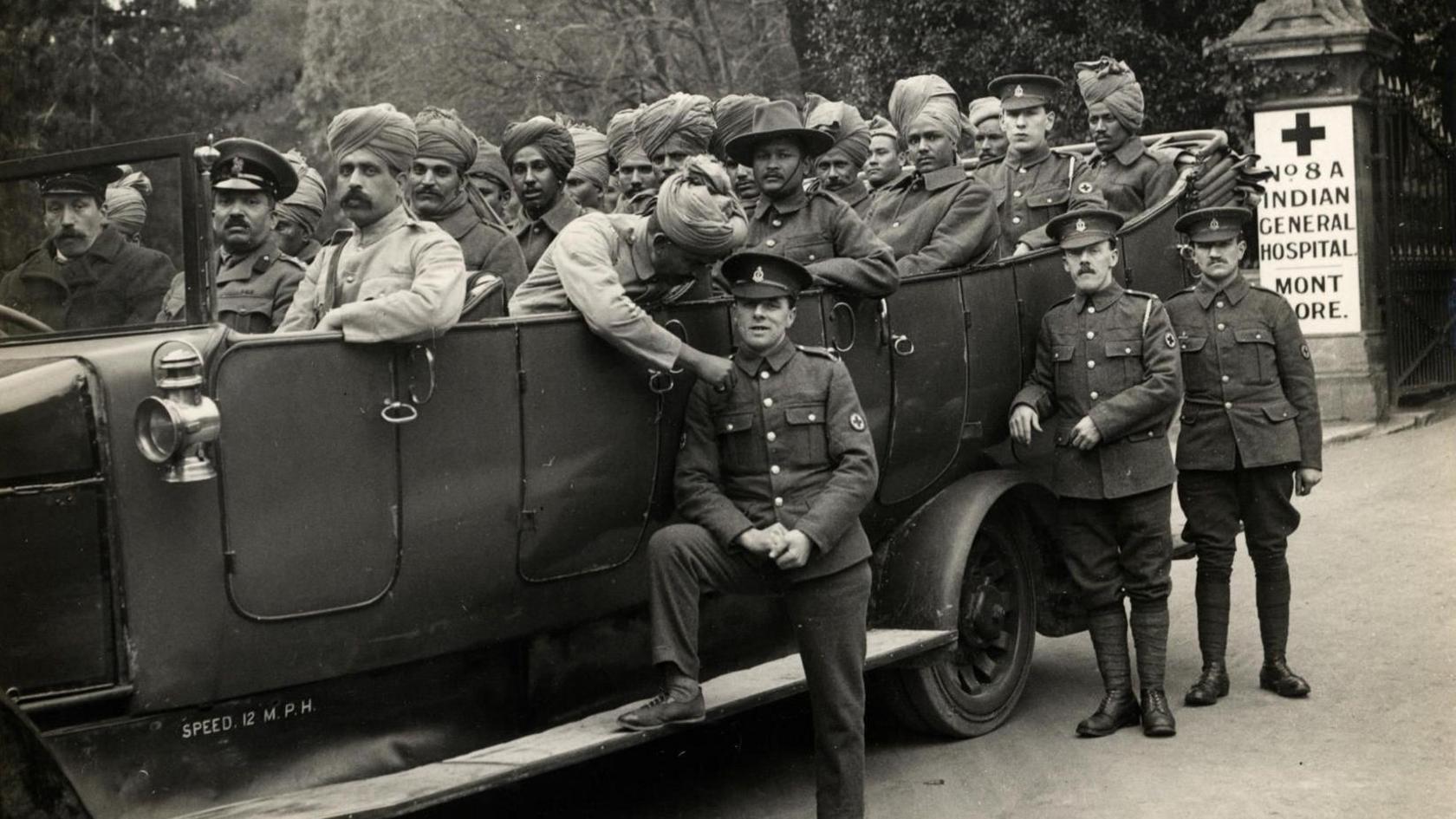
Vehicle tours were organised to help the soldiers recuperate
- Published
A seaside hospital used by Indian soldiers during World War One has been officially commemorated for the first time.
A plaque has been unveiled at the former Mont Dore Hotel - now Bournemouth Town Hall - in memory of more than 1,000 Indian troops who were treated at the makeshift hospital in 1914 and 1915.
It was created soon after King George V visited injured troops in camps in the nearby New Forest.
The soldiers went on vehicle tours, used pleasure boats and walked along Bournemouth beach as they recovered from their injuries, according to photographs at the time.
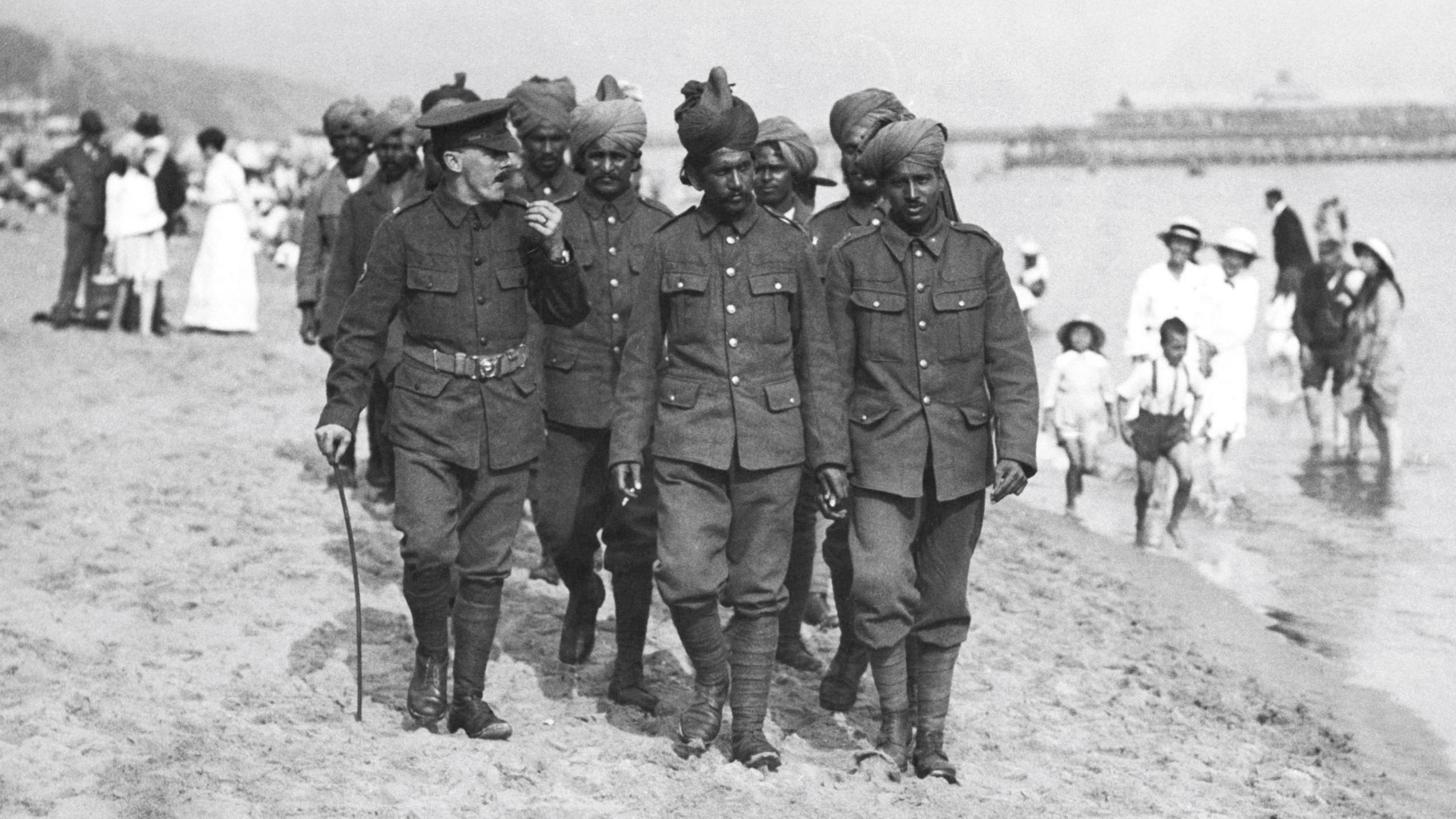
Bournemouth residents became used to the sight of Indian soldiers on the beach
Tens of thousands of Indian troops served in France and Belgium. At one point early in the war, a third of the British Army on the Western Front came from India.
According to one British officer, "they filled a gap in the line when we had no other troops to put in".
Some of the wounded were shipped to camps and hospitals in Brighton and the New Forest.
More than 3,000 injured Indian soldiers were treated at the Lady Hardinge Hospital in Brockenhurst.
However, military historian Nick Saunders said Bournemouth's story was less well known.
He said the hospital was created after King George V raised concerns in November 1914 over the use of huts and tents to treat injured soldiers in the New Forest.
“Two days after the King’s visit, a senior medical officer came down here and commandeered the building, the Mont Dore Hotel, the biggest hotel," Mr Saunders added.
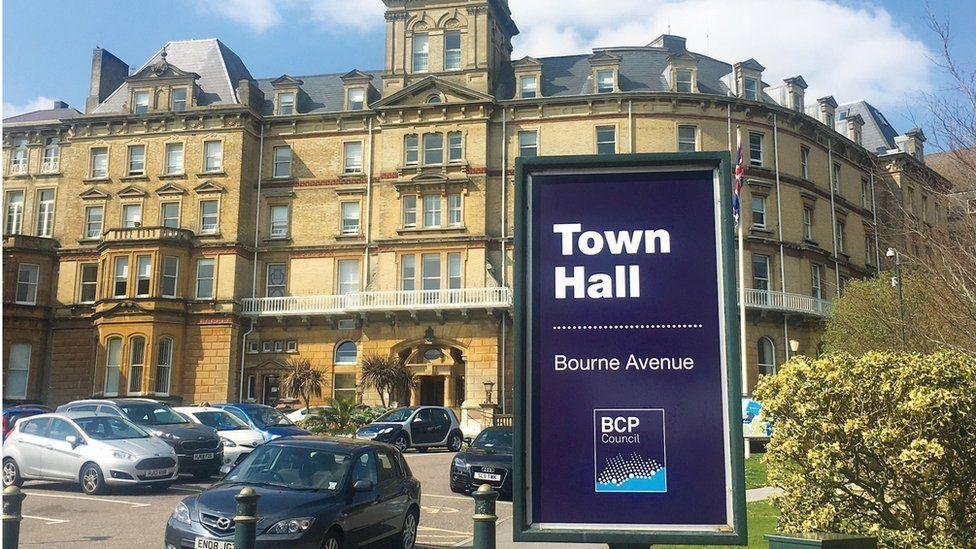
The former hotel is now the headquarters for Bournemouth, Christchurch and Poole (BCP) Council
To help them convalesce, the soldiers were sent on vehicle tours of the area and would visit Bournemouth beach.
Mr Saunders said: “We have a photo of them with the pier behind them.
"This picture was published in the Times of India and the caption is: ‘They would obviously rather be walking along Back Bay, Bombay.'
"Members of the Indian community now come down here to try and replicate that image of the Indian soldiers on the beach with the pier behind them.”
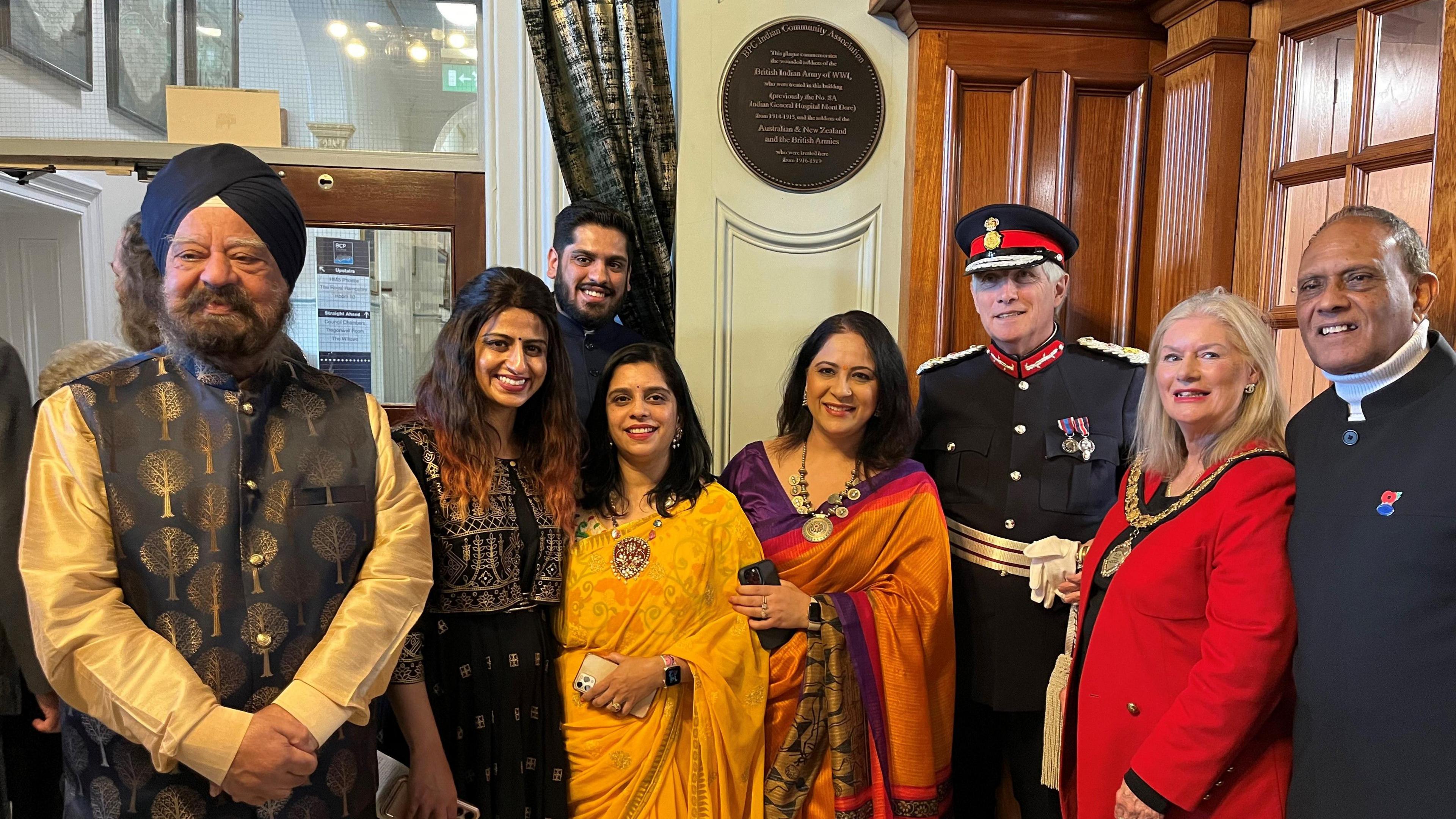
A plaque commemorating the former hospital has been unveiled inside the building
Concerts were arranged in Bournemouth for the soldiers' entertainment and to raise money for their welfare.
"It brought Indian music and religion to the Indian soldiers and shows how the locals welcomed them," Mr Saunders said.
In a letter, one soldier wrote: "The people here are of a very amiable disposition; they talk pleasantly, treat us kindly and are very pleased to see us.”
However, the hospital food received mixed reviews, with one reporting: "Food is awful here and no-one will get better on this", while another enthused: "You can have as much as you want and it is delicious."
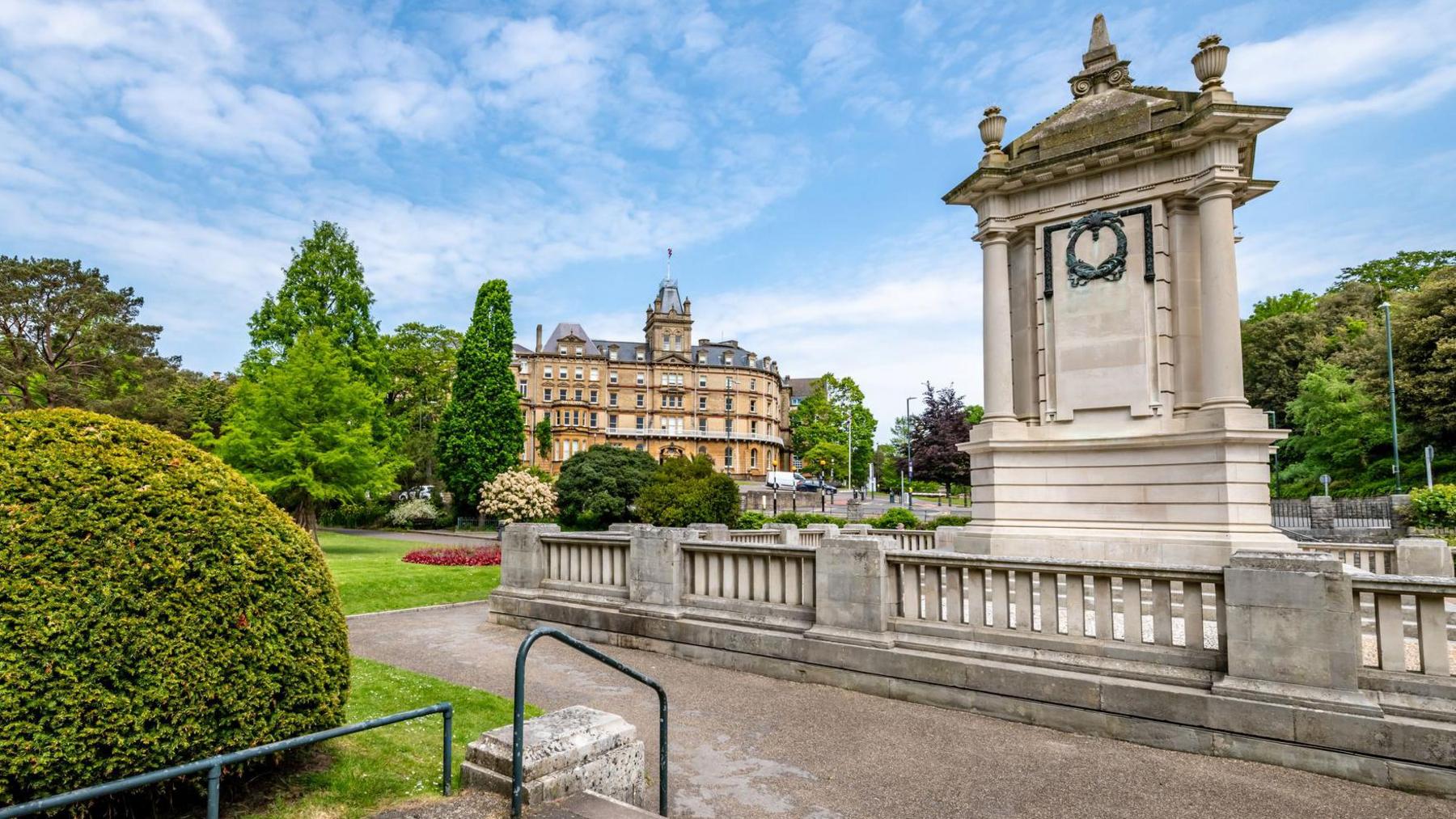
None of the Indian soldiers who died at the hospital are named on the town's war memorial nearby
At Wednesday's unveiling of the plaque, Mr Saunders read out the names of 12 Indian soldiers who died at the Bournemouth site, formerly known as No. 8A Indian General Hospital.
However, he said none of them were listed on the town's war memorial, a stone's throw away.
Mr Saunders said: “My next task is to create a memorial naming the Indian soldiers who died in the hospitals of Bournemouth and the New Forest.”
An Indian community group in Dorset campaigned for the plaque to be put in place.
Ramesh Lal, from Bournemouth, Poole and Christchurch Indian Community Association, said he had lived in Dorset for more than 25 years but only became aware of the historical connection recently.
He said: "It was a surprise for me to realise that over a hundred years ago, Indian soldiers... were walking the beaches of Bournemouth.
"Yet I thought I was the first Indian to ever walk on these beaches."
Get in touch
Do you have a story BBC Dorset should cover?
You can follow BBC Dorset on Facebook, external, X (Twitter), external, or Instagram, external.
- Published18 November 2024
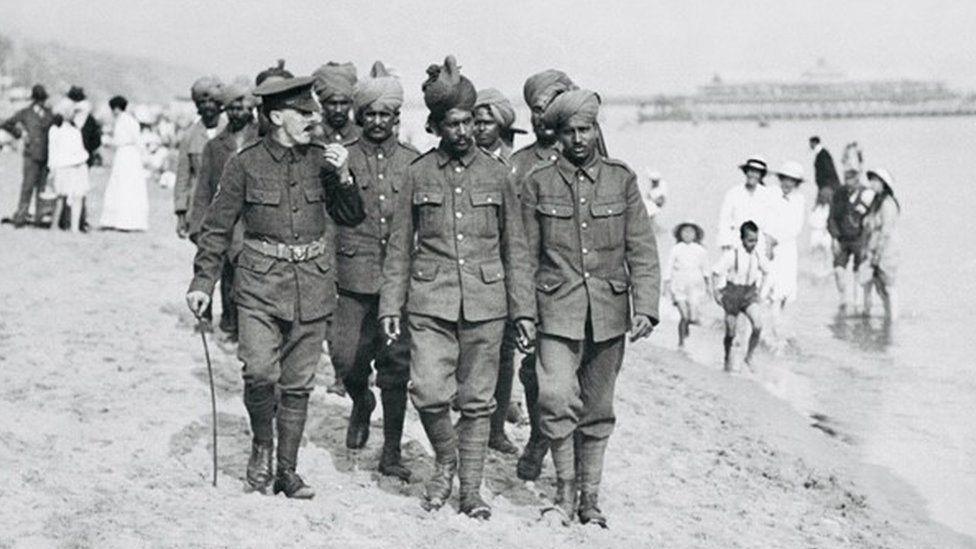
- Attribution